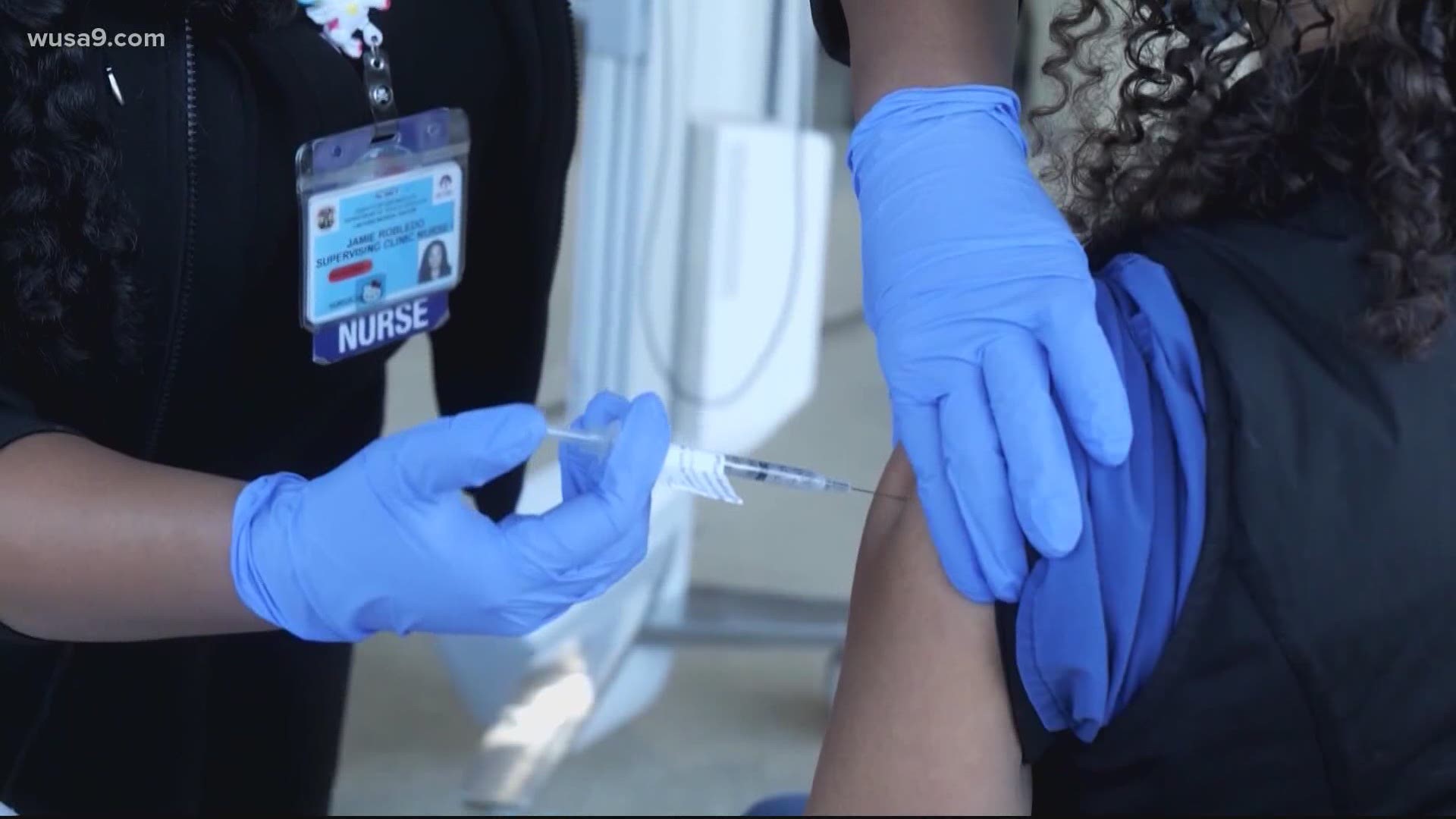WASHINGTON — Since cases were first announced in our area one year ago, the question on all of our minds has been when will the COVID-19 pandemic finally come to an end?
WUSA9 went to experts to find out what that might look like in the future.
QUESTION: What does "the end" of this pandemic really mean?
ANSWER: Public health experts agree the currently approved vaccines could have a lot to do with it.
“I think there are a couple stages that are important for us to think about when we look towards the end of this pandemic. The first component is what we've seen from an encouraging standpoint when it comes to the vaccines,” explained Christopher Sulmonte, Johns Hopkins Bio-Containment Unit Project Administrator. “For all three vaccines that have currently been approved — one of the things that especially makes me feel hopeful is their effectiveness against minimizing mortality, minimizing hospitalizations, and minimizing severe disease.”
Some experts may consider the point of greatly minimizing severe disease as reaching herd immunity, defined by the Center for Disease Control and Prevention as “enough people in a community are protected from getting a disease because they’ve already had the disease or because they’ve been vaccinated.”
Q: So will herd immunity end the pandemic?
A: The CDC says experts don't know exactly what percentage of people would need to get vaccinated from COVID-19 in order to achieve herd immunity, so defining the end of the pandemic may not be as easy as just counting how many people have received the vaccine.
“We see increasing restrictions and responses to a large peak, but also a slow reduction in those restrictions over time. This is something that we will see when it comes to the eventual ‘as close to a new normal’ as we have in response to the pandemic,” Sulmonte described. “So it won't be a simple light switch in terms of when the pandemic ends from a practical standpoint.”
He encourages the public to look to local health departments for guidance as the future unfolds.
But health experts don't always agree and restrictions can differ even from county to county. Even within various levels of government restrictions, organizations, neighbors and even family members aren't always in agreement about what choices are best when it comes to pandemic safety.
Q: In the future, could the pandemic be over to some people and not others?
A: Ultimately what people see as the end of the pandemic and a return to normal could come down to individual decision making. Something ethicists, like Dr. Daniel Sulmasy, Director of the Georgetown University Kennedy Institute of Ethics, are deeply familiar with.
“[These decisions] start with simple things like when you wear a mask, and where do you wear a mask? When to go back to work, whether to do testing, whether to see relatives who haven't been vaccinated yet,” Dr. Sulmasy explained. “These decisions we'll make will be gradual. But I think coming soon, within the next few months, people are going to be able to start making these kinds of choices.”
Dr. Sulmasy has a history of giving his guidance in the pandemic, as the D.C. Department of Health asked him to provide ethical guidance to as they created their vaccination plan. The consultation provides an example of the major role ethics has played throughout the pandemic, from governmental decisions down to everyone’s individual daily choices; who we see, when we see them and even how much toilet paper to buy.
“It is important to recognize that public policy, particularly around health care, really is seriously ethical,” Dr. Sulmasy shared. “We need to make ethical choices and not just scientific choices.”
His hope is that when individuals face these decisions, they'll be thinking of the community instead of only themselves.
“One thing that I hope people have learned from the pandemic is an appreciation for the common good,” he said. “Now is not the time to sort of let everything rip, there's still a lot of virus circulating out there.”

